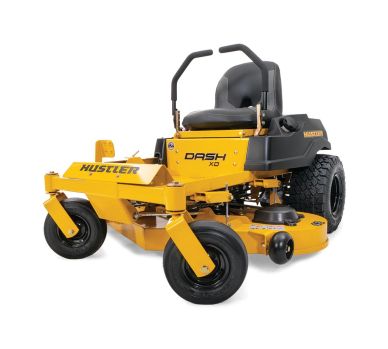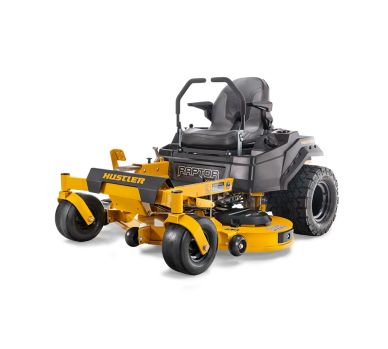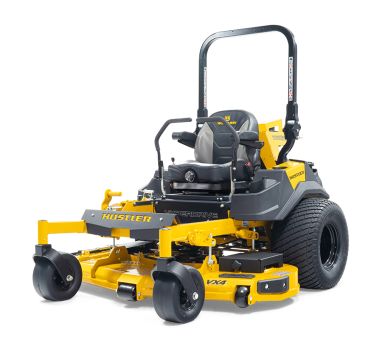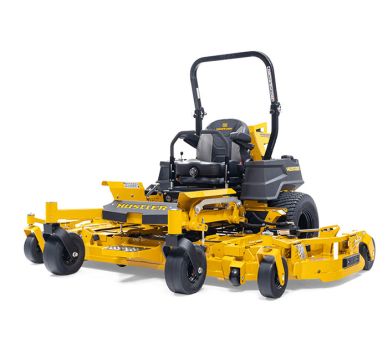Residential Vs Commercial Zero Turn Mowers.

Which zero turn is best... residential or commercial??
With a huge range of zero turn mowers now available in the market, there is plenty to think about when researching your next mower.
For many home owners a residential zero turn offers the best value for money while being perfectly fit for purpose.
Commercial operators often demand additional comfort and durability features more suited to long days of operation in a wide variety of mowing conditions.
Then there are the large area property owners who simply want a bigger and better mower than may be offered in a residential zero turn range.
Whatever the case there are pros and cons of both, and it's work doing your homework to see whether a residential or a commercial zero turn is best for you and your mowing conditions.
Let’s take a closer look at the main differences between the two.
|
|
Residential |
Commercial |
|
Durability & Build Quality |
Residential zero turns are cheaper to build and cheaper to buy however saying they are built to a price is an over simplification. While some manufacturers may cut costs to compete at a lower price point, for most its more about offering a level of strength and quality to suit the expectations and demands of residential users, while not over speccing certain aspects of the build and adding unnecessary cost. It's important to consider your minimum requirements, or deal breakers when looking at a residential zero turn. As a good baseline, look for a fabricated steel cutting deck (as opposed to a thinner pressed steel deck), a reputable engine brand, and an overall feeling of quality fit and finish. Is there too much plastic, does generally look strong or look cheap? While some residential zero turns have an underlying quality, and will last many years, some others may not hold up as well year after year. A keen eye for quality may save you from making a price based decision that could end up costing more in the long run. |
Build quality is perhaps the one thing more than any other that professional operators look for in a commercial zero turn mower. Downtime is wasted time, and a commercial mower needs to cope with all sorts of rough treatment and keep turning up for work each day. A fabricated deck will be a given on a commercial machine, but look for the thickness of steel as well. 7 Guage steel is generally the toughest, with 10 or 11 guage steel often used on cheaper commercial mower decks. Look for a strong heavy feel to the deck. Can you stand on the deck without it wobbling around? Is there a solid foot pedal and locking pin for the deck height adjustment? Are the spindle housings cast iron and greasable? A commercial machine should feel like it could have a bomb dropped on it and keep going. Is the console protected against knocks, and do the buttons and switchgear look and feel solid. These little things often point to an overall approach to manufacturing quality. Lastly look for a long commercial use warranty. A long residential warranty with a 90 day commercial warranty indicates that a machine is not as strong as it could be and not designed to stand up to year after year of demanding all day every day mowing. |
|
Performance and Productivity |
The good news for residential buyers is that the "acres per hour" productivity of any zero turn is largely dependant on the engine power and deck width, regardless of any additional build quality or comfort specifications that may be preferred in commercial machines. So for example a residential unit may be lesser equiped in some regards, but still get your job done in a similar time as a more expensive commercial machine with a comparable deck width and engine power rating. For owners with an easy flat block and a regular mowing routine, a residential zero turn may make the most sense, even if the area being mowed is quite large. Higher end residential zero turns should be perfectly suited to mow blocks of 5 acres or more, especially if the block is well maintained and relatively flat. |
Commercial mowers really come into their own when the going gets tough. If the mower will be working for long hours, especially in hot weather, the engine and transmissions in particular need to be strong enough to go the distance. Commercial engines will usually have greater durability features such as cast iron cylinder bores, a bigger more effective air filter, while also being gererally bigger and more powerful than residential mower engines. Commercial transmissions will often have seperate wheel motors, and superior oil cooling features, to promote long and reliable operation in all conditions. Look for a commercial waranty on the engine and transmissions, to ensure they have been tested and backed for commercial use applications. The cutting decks on commercial units are generally made of thicker steel and are more resistant to abuse, but are also often deeper with superior airflow, suited to clearing longer grass fast, promoting cleaner cutting performance in a wider range of grass varieties and length. |
|
Features |
Residential mowers may share similar features with commercial mowers, but there are certain characteristics that make them more suited for residential use. Some of these unique features include: - Smaller Deck Size: Typically ranging between 34" to 60", which allows for easy maneuvering around obstacles and tight spaces found in smaller properties. - Smaller Fuel Tank: Residential mowers have a smaller fuel tank compared to commercial ones. - Partial Comfort Features: Residential mowers offer some comfort features found in commercial ones, such as a high back seat and armrests. However, these features are not as comprehensive as the ones found in commercial-grade mowers. |
Commercial-grade mowers are designed to handle the toughest jobs, offering better maneuverability, made with heavy-duty materials, and featuring more powerful horsepower. Here are some of the notable features found in commercial mowers: - When it comes to safety, commercial mowers come equipped with a ROPS bar, designed to protect operators from tipping when working on steep slopes. This feature is not typically found on residential mowers. - The deck width on commercial mowers ranges from 42"-120", making them suitable for larger lawns like golf courses and football fields. - Commercial mowers boast more comfortable seating, frequently including armrests to reduce operator fatigue. - There are a wider range of accessories available for commercial mowers, allowing them to be better customized for specific jobs. Some of these accessories include mulching kits, striping kits, lighting systems, bagger systems, cup holders, and more. |
|
Price |
Residential mowers are generally cheaper than commercial mowers, with a price starting from $7,000, making them a more affordable option for homeowners with lawns up to 3 acres. They provide a cost-effective solution that comes with commercial-grade features.
|
Due to the durability, performance and advanced features that come with commercial-grade equipment, commercial mowers can cost up to $60,000. |
When purchasing a zero turn mower, factors to take into account include whether the intended use is for residential or commercial purposes. Another consideration is the frequency of usage, such as once every 2-3 weeks versus daily use. The size of the area being mowed, as well as any obstacles or slopes, should also be factored in. Lastly, budget is an important consideration when choosing between a residential or commercial model.
Once you have decided on which mower best suits for your application, contact us for a free demo!
For an onsite demonstration of a residential or commercial zero turn mower, just reach out to your local Hustler dealer.
Thanks for reading!
If you know someone interested in a zero turn mower, please feel free to share this article.
To stay up to date with new articles as they drop simply bookmark our learning centre page, and check in regularly, or follow us on:
Research models and book an in-store or on-site demo.
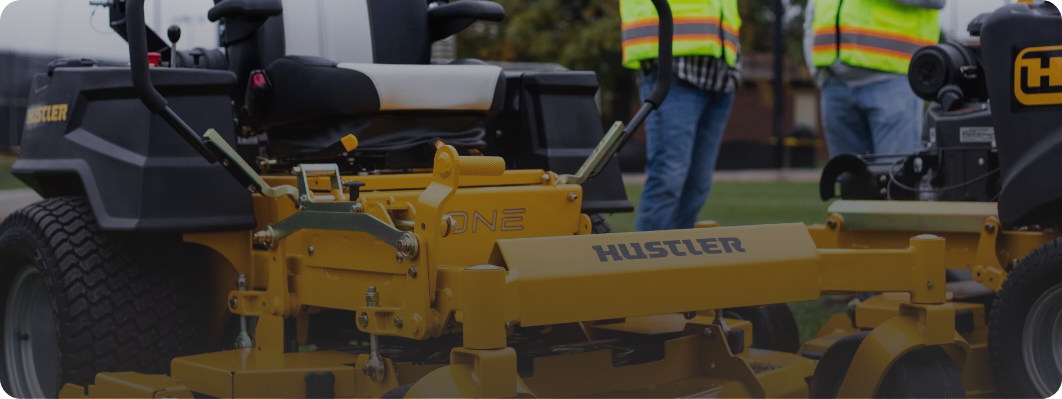
Talk to an expert about your specific mowing requirements.

 Here to Work
Here to Work Finance Solutions
Finance Solutions 100+ Dealers
100+ Dealers Since 1964
Since 1964